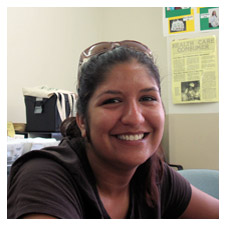From the Columbia Journalism Review
What Social Security means to real people
 Jennifer Tayabji is the kind of person that Alan Simpson [a member of the president’s deficit commission] likes to talk about. She’s young, and fits his conception of some retiree’s grandchild. As the former Wyoming senator likes to say, we have to fix Social Security for our grandchildren.
Jennifer Tayabji is the kind of person that Alan Simpson [a member of the president’s deficit commission] likes to talk about. She’s young, and fits his conception of some retiree’s grandchild. As the former Wyoming senator likes to say, we have to fix Social Security for our grandchildren.
The twenty-nine-year-old Tayabji has heard that kind of talk. “I don’t have confidence Social Security will be there when I do retire, especially if they raise the retirement age,” she told me. “A lot of people in the lower income bracket will be alive, but by the time they get to that point, the idealized notion of what retirement is will be gone.”
There’s no pension or 401(k) plan where Tayabji currently works, but she knows that some of the larger non-profits in the area do have pension plans which she could contribute to later on if she ends up working for one of them. So unless her employment prospects bring a much higher salary and a pension, her only retirement income will be Social Security, with whatever the average benefit is when she retires. If the retirement age for her age cohort is pushed to seventy, that translates into a benefit reduction for her.
Read Jennifer’s story at the Columbia Journalism Review »
?
More To Read
May 2, 2024
Baby Bonds: A Step Toward Racial and Economic Equity
The Washington Future Fund would bring this innovative, anti-racist policy to the Evergreen State
May 1, 2024
Laws Targeting LGBTQ Youth Aren’t Just Bad for Kids – They’re Bad For The Economy
The harm done by anti-LGBTQ laws expands so much further than queer children and teens
April 26, 2024
What is WA Cares and Why Does It Matter for Washingtonians?
We need to defend this important policy from billionaires looking to save a buck
